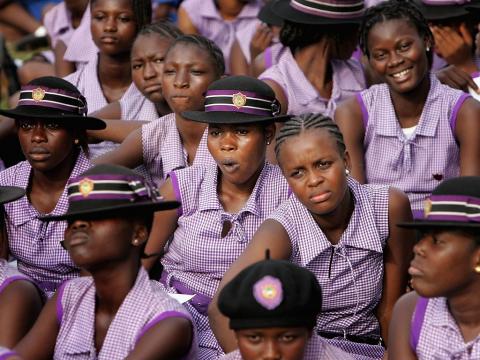By Mohamed Foday Conteh
Three thousand and forty schools have so far benefitted from the government’s Free Quality Education (FQE) Programme. President Julius Maada Bio upon assuming office in 2018 initiated the education programme that saw an unprecedented number of children enrolled in in government run and assisted schools across the country.
There has been a new enrolment record of 700,000 pupils across the country with 1,400 teachers approved. The Communications Analyst in the Ministry of Basic and Senior Secondary Education (MBSSE), Augustine Sankoh in a media release, stated that over 1,900 teachers are at present being reassessed and recruited to add to the already 3,400 verified teachers.
Government has approved 53.4 percent pre-primary schools, 78.7 percent primary schools, 76.7 percent junior secondary schools and 80.4 percent senior secondary schools.
In 2018 the government launched the FQE Programme assisting to pay tuition fees for children in government and government-assisted schools.
The implementation of the FQE had seen an exponential increase in government’s expenditure in the educational sector by 400 percent, four times more than before.
The MBSSE’s data for Gross Enrolment Rate (GER) for primary schools reveals that since the launch of the FQE Programme, there has been an increment of 34 percent for both boys and girls intake.
The Global Partnership Organisation had in a report earlier stated there was a significant lack of teaching expertise in Sierra Leone which resulted in deteriorating standards in education both in rural and urban schools. The Organisation found out that in 2016, ‘41% of male and 28% of female teachers’ at lower secondary school level were either teaching without a qualification or with a qualification below the required standard. The number is said to have been even higher at upper senior secondary school level.
The FQE programme is geared towards ensuring all children will be able to successfully complete basic education in order to be prepared to move on to pursue higher education or training as appropriate for the workforce needed for national development
Copyright © Politico Online 01/11/21








